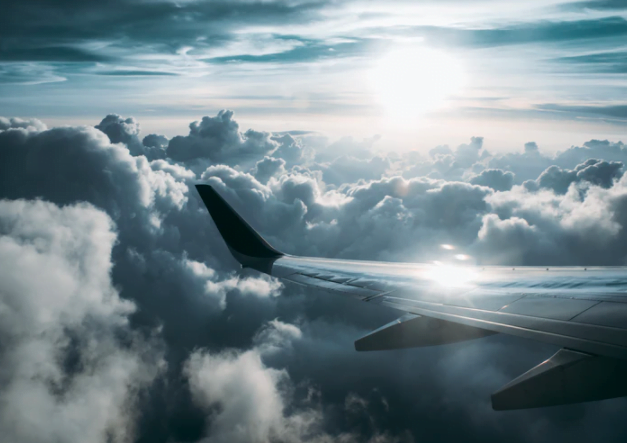The aviation industry is changing and trying to adapt to people’s demands and needs. As time passes by, there is a need for more advanced technologies that will help shape the aviation sector and make it better than we know it.
Especially after the effects of the pandemic on the industry, some changes have to be made to make sure people not only get the best experience but are also safe during their travels.

In this decade, we might see a lot of significant changes to the aviation sector – changes that will make aviation as an industry more exciting. What are these changes, though? Let’s find out!
The Rise of eVTOLs
One big change, and one that people are looking forward to, is the rise of eVTOLs. These flying taxis are meant to serve the population by transporting individuals from a place to another very fast, avoiding the high traffic that everyone dreads so much. Fortunately, flying cars are in the works, and in the future, you might not have to deal with sitting in traffic jams for hours.
eVTOLs are so awaited not only for the transportation benefits but also for their planned eco-friendliness. Manufacturers are trying to find ways to power new vehicles that are not harming the environment.
As of now, improvements have to be made as batteries for electric models are pretty heavy, and they do not carry enough power for longer rides.
This is one of those sectors that investors are interested in as it has great potential if solutions are found for the questions and concerns regarding eVTOLs. There are hundreds of projects (such as those operated by Astro Aerospace (OTC:ASDN), which you can read about here) that focus on flying vehicles, so this decade will definitely see a rise in eVTOLs.
Airline Fleet and Network Shifts
Compared to the past years, there is less airline capacity today. This happened due to Airbus production delays after two deadly accidents, as well as airline failures in Europe and the choice of some airlines to constrain the growth capacity. The latter was the result of the uncertainty of the economy.
Therefore, the following years might see a shift in fleets and networks. One of the things that might happen include the rise of smaller-gauge aircraft. As this will happen, it will create more point-to-point routes, which will be useful in serving much smaller airports.
Thanks to the new jets, airlines will be able to serve the low-volume routes more effectively while ensuring there is not a lot of competition on the connecting routes. There will also be some “dehubbing” for carriers, even if they will still be important.
Environment-Friendly Aircraft
A lot of old aircraft are using fuels that are not friendly to our environment. Luckily, plenty of these airplanes have been retired, but there is still a need for some greener ways of handling the aircraft industry. Aviation should be able to work without harming our planet, and this is one of the expected changes for the following decade.
There are different movements that encourage people to avoid flying, as an attempt to urge the industry to use eco-friendly alternatives to operate aircraft.
That being said, there will be some increasing awareness about the effects of fuel-hungry models and more people will prefer greener alternatives. The industry is very likely to start shifting in this regard.
More Partnerships and Alliances
In the future, we might see more alliances among airlines. Through joint ventures or mergers, new alliances will be created, which will lead to better services for passengers all over the world.
Apart from that, there may also be agreements that include equity stakes, which will then put airlines in a much higher position in a specific region or market. With successful strategies, airlines will have the chance to create their own competitive landscape.
As a result, they will be able to work harder through these alliances to create innovations in customer service. They will also expect the moves of the competitors and analyze the effects on their business. By doing this, they will be able to find ways to respond through well-developed plans.
Healthier Flights
During the pandemic, people started understanding the importance of safety and security in the aviation industry and not only. Since the virus had such an impact on aviation as a whole, it is very likely that the industry will start developing more effective safety measures to protect the health of their passengers.
The entire world will have to determine the way health safety will help change their aviation operations for the better. In the future, there might be other pandemics and health hazards, so things need to change to prepare the aviation sector for what’s to come.
Changes in Organizational Capabilities, Skills, and Working Ways
Airlines will have a different way of managing talent in this decade. Since digitalization now happens in most sectors, it will have an impact on the industry. There will be fewer people working in airport operations, call centers, and other departments, and more individuals working as designers, software engineers, or data scientists.
Airlines will need more digital talent – as a result, they will have new recruiting strategies for their employees. They might even look for new office locations, so airline companies will become more and more attractive for those looking for a new job.
Besides this, airlines will be in competition over pilots due to the small number of available pilots. Companies are more likely to offer high salaries for these professionals, competing for people’s talents and aiming for success.
The Bottom Line
This decade, the aviation industry will change in different ways. Not only are we going to experience the rise of eVTOLs, but we will also see airlines opting for more eco-friendly ways to power their aircraft and more safety measures taken to protect the passengers, among many other things.
In time, these changes will innovate and improve the aviation industry, making it fit for the 21st-century demands.






